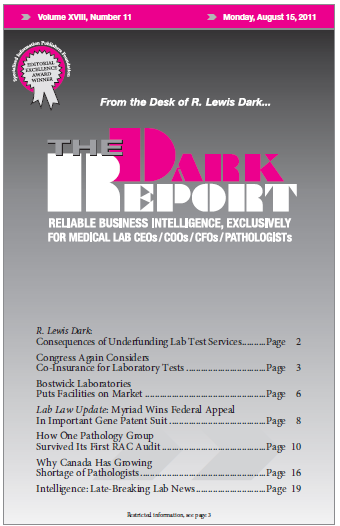CEO SUMMARY: Last summer, InCyte Pathology in Spokane, Washington, found itself facing demand letters from the recovery audit contractor (RAC) responsible for that region. The RAC auditor was questioning claims for technical component (TC) services and seeking repayment from InCyte Pathology. It took three months and plenty of dogged determination for the InCyte team to …
How One Pathology Group Survived Its First RAC Audit Read More »
To access this post, you must purchase The Dark Report.


